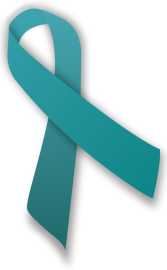
Breast Cancer
 The facts:
The facts:
Not counting some kinds of skin cancer, breast cancer in the United States is—
- The most common cancer in women, no matter your race or ethnicity.
- The most common cause of death from cancer among Hispanic women.
- The second most common cause of death from cancer among white, black, and Asian/Pacific Islander women.
- The third most common cause of death from cancer among American Indian/Alaska Native women.
The best defense is early detection.
- Get a mammogram every year starting at age 40.
- Do a breast self-exam every month starting at age 20.
- Get a clinical breast exam every year if you are age 40 or over and every 3 years for women age 20-39.
For more information please call 309-837-9951 ext 2200.
 Cervical Cancer
Cervical Cancer
The facts:
All women are at risk for cervical cancer. It occurs most often in women over age 30. Each year, about 12,000 women in the United States get cervical cancer and about 4,000 women die from it.
- Almost all cervical cancers are caused by human papillomavirus (HPV) a common virus that can be passed from one person to another during sex.
- At least half of sexually active people will have HPV at some point in their lives, but few women will get cervical cancer.
- There are usually no symptoms
- The best defense against cervical cancer is early detection
Things can increase your risk of cervical cancer—
- Smoking
- Having HIV (the virus that causes AIDS) or another condition that makes it hard for your body to fight off health problems.
- Using birth control pills for a long time (five or more years).
- Having given birth to three or more children.
- Having several sexual partners.
The best defense is early detection.
- A Pap smear should be done yearly when a women first becomes sexually active or is 18 years of age or older.
- Pap test is recommended for all women between the ages of 21 and 65 years old, every 3 – 5 years depending if co testing is done
- If you are over 30 and Co-testing (PAP and HPV testing done at the same time). If HPV is negative you may wait as long as 5 year before needing another pap
For more information please call 309-837-9951 ext 2200.
 Illinois Breast and Cervical Cancer Program
Illinois Breast and Cervical Cancer Program
Goal
To reduce breast and cervical cancer mortality for Illinois women by providing quality screening and diagnostic services which promote early detection of breast and cervical cancer.
Program
The Illinois Breast and Cervical Cancer Program (IBCCP) is funded by the U.S. Centers for Disease Control and Prevention and the Illinois Department of Public Health. IBCCP was created to provide breast and cervical cancer screening and referrals to income eligible, uninsured or underinsured women. A woman is eligible if she lives in Illinois, does not have health insurance, has a high deductible or insurance doesn’t cover for diagnostic services, is between the age of 40 and 64 for mammograms and breast exams and between 21 and 64 for pelvic exams and Pap tests, and has a limited income (but not on Medicaid). It offers free mammograms, breast exams, pelvic exams and Pap tests to eligible women. The program sets up appointments for women with local doctors or hospitals. If a woman enrolled in IBCCP is diagnosed with cancer through the program’s screening and tests, she is eligible to receive treatment benefits through the state’s Medicaid system.
IBCCP reduces breast and cervical cancer mortality by providing quality screening and diagnostic services that promote early detection. Fulton-McDonough-Schuyler County Breast and Cervical Cancer Consortium is set up so that a client can participate in IBCCP at one county health department and go to a doctor for the services in any of the other counties. IBCCP services are the same at all three counties.
For more information about the program or to find out if you are eligible call 309-837-9951 ext 2200.
Susan G. Komen Mammogram Scholarship Program
The Susan G. Komen grant provides funding for the health department to provide free mammograms to women who qualify by age (35-64) and income (same guidelines as IBCCP). Younger women may qualify as well if a doctor orders the mammogram and if they have an abnormal breast exam. Young women must also have a very strong family or self-history of breast cancer. The Komen grant provides a means of early detection among women who otherwise may never be able to afford a mammogram.
For more information about the program or to find out if you are eligible call 309-837-9951 ext 2200.
